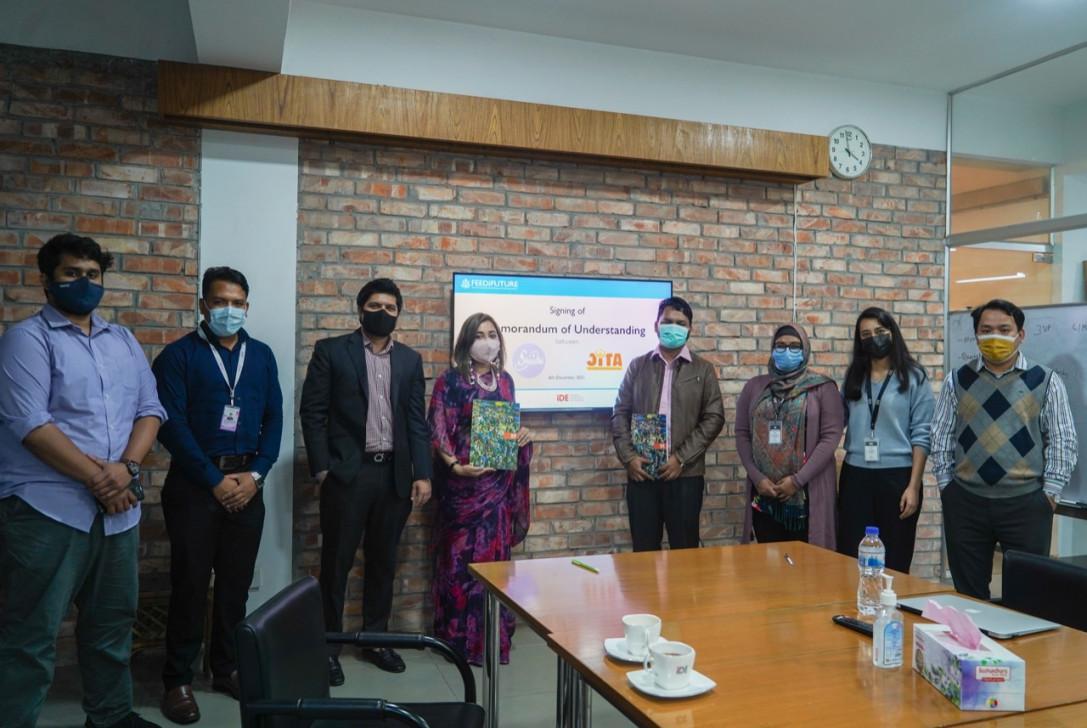Shaathi and Jita signs MOU to facilitate menstrual hygiene in Khulna division
Shaathi Bangladesh Ltd, manufacturer of reusable sanitary napkins, represented by its chairperson Ms Mifrah Zahir and JITA Bangladesh represented by project manager, Mr Aasif Zaman signed a Memorandum of Understanding (MOU) on Monday, December 06, 2021. The signing of the MOU occurred in the premises of iDE’s Dhaka office. The agreement has been facilitated by iDE Bangladesh (on behalf of Feed the Future Bangladesh Nutrition Activity funded by USAID and project prime Abt Associates) to promote and sale of reusable sanitary napkins and practice of clean and safe menstrual hygiene behavior among low income women and girls in Khulna division through local female sales agents.
The local female sales agents will go door to door and sell Shaathi’s low cost reusable sanitary napkins directly to customers through home visits, parent meetings at school and courtyard meetings of women while simultaneously raising awareness and sensitization of menstrual hygiene management. The societal taboo and stigma surrounding the issue makes it difficult for women to purchase sanitary napkins from shops where the seller is usually a man.
Millions of women and girls from low income community in Bangladesh find it difficult to manage menstruation safely and effectively due to cultural restrictions, inability to access essential items, lack of awareness thereby affecting their health, education and psychosocial wellbeing. According to Bangladesh National Hygiene Survey 2014, 86% of school girls use rags during their periods. The study also shows girls on an average miss approximately three school days every menstrual cycle falling behind their male counterpart. Access to sanitary napkins would improve the ability of girls to manage their full period with dignity and more safely navigate adolescence. Women would also benefit the community and the enterprises.
The partnership will ensure that women are able to access feminine sanitary items at the comfort of their homes so they can manage their menstruation safely, hygienically and with dignity. The increase in the use of reusable sanitary napkins contribute to better health of women and have a positive impact fulfilling United Nation’s Sustainable Development Goals, SDG 3 (Health), SGD 5 (Gender Equality) and SDG 6 (Water & Sanitation).
Source: The Daily Star

